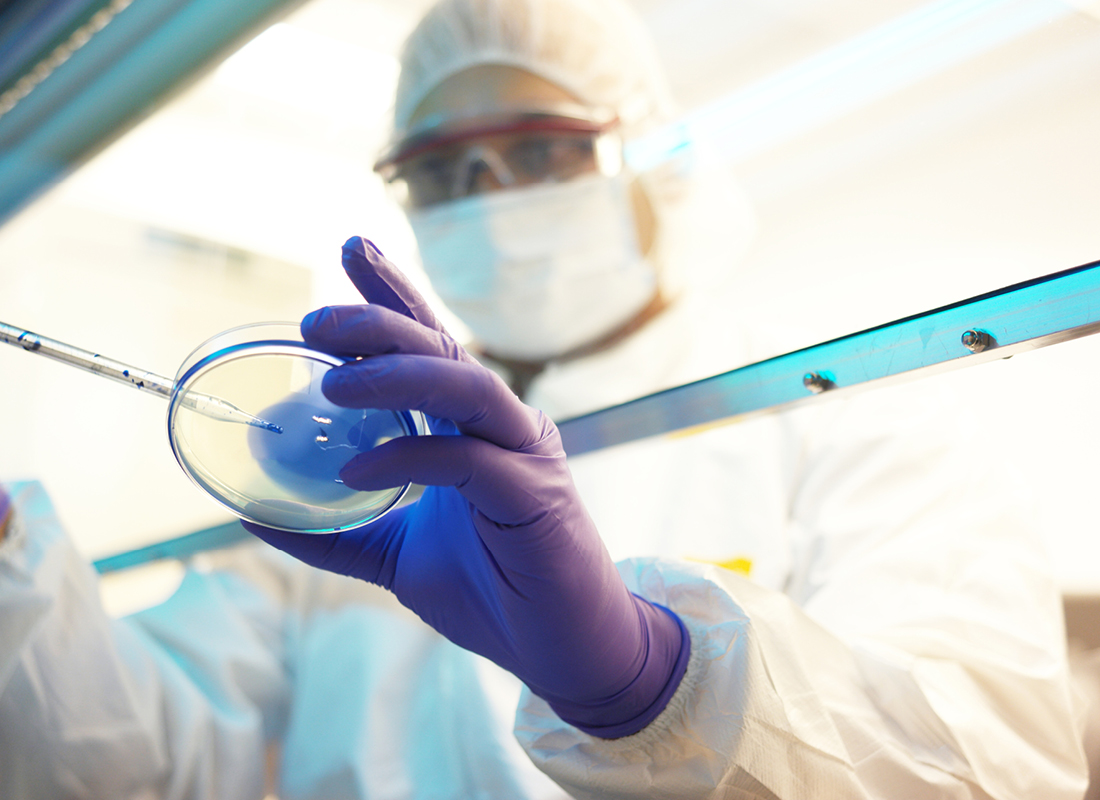AACC Guidelines Caution Against Using Serology Tests to Determine COVID-19 Vaccine Efficacy
Although SARS-CoV-2 serology tests have yet to live up to the hype, they are still expected to play a crucial role in coronavirus infection control efforts going forward. In addition to accuracy concerns, testing laboratories that develop and manufacture Emergency Use Authorization (EUA) and laboratory developed test (LDT) serology tests have been bedeviled by confusing and sometimes contradictory messaging and regulation. However, new guidelines from the American Association of Clinical Chemistry (AACC) may help clear up the confusion and get SARS-CoV-2 serology testing back on track. The Diagnostic Challenge When the pandemic first began, many hailed serology tests that detect antibodies the body creates to fight SARS-CoV-2 as holding the key to not only rapid widespread testing but also efforts of public health officials to track infection rates and prevalence in different communities. Among the early believers was the U.S. Food and Drug Administration (FDA) which initially allowed SARS-CoV-2 serology tests to reach the market without EUA. Literally hundreds of assays passed through the floodgates, many of which lacked anything close to the scientific reliability and accuracy required for EUA status. Dozens of these junk tests were recalled. Not until May 4, nearly three months into the public health emergency, […]

Although SARS-CoV-2 serology tests have yet to live up to the hype, they are still expected to play a crucial role in coronavirus infection control efforts going forward. In addition to accuracy concerns, testing laboratories that develop and manufacture Emergency Use Authorization (EUA) and laboratory developed test (LDT) serology tests have been bedeviled by confusing and sometimes contradictory messaging and regulation. However, new guidelines from the American Association of Clinical Chemistry (AACC) may help clear up the confusion and get SARS-CoV-2 serology testing back on track.
The Diagnostic Challenge
When the pandemic first began, many hailed serology tests that detect antibodies the body creates to fight SARS-CoV-2 as holding the key to not only rapid widespread testing but also efforts of public health officials to track infection rates and prevalence in different communities. Among the early believers was the U.S. Food and Drug Administration (FDA) which initially allowed SARS-CoV-2 serology tests to reach the market without EUA. Literally hundreds of assays passed through the floodgates, many of which lacked anything close to the scientific reliability and accuracy required for EUA status. Dozens of these junk tests were recalled. Not until May 4, nearly three months into the public health emergency, did the FDA pull back and require EUA clearance for serology tests.
This limited FDA review process for EUA approval, the AACC guidelines note, coupled with all of the different types of available tests and wide variance in performance characteristics and “the incomplete understanding of the humoral immune response in COVID-19,” created questions about how to utilize and interpret SARS-CoV-2 serology tests most effectively. Those questions remain, despite the interim guidelines published by the U.S. Centers for Disease Control and Prevention (CDC), International Federation for Clinical Chemistry (IFCC), Infectious Diseases Society of America (IDSA) and other organizations.
The AACC Guidelines
The new guidelines created by a panel of AACC experts are an attempt “to provide a comprehensive reference for laboratory professionals and healthcare workers to appropriately implement SARS-CoV-2 serologic assays in the clinical laboratory and interpret test results during this pandemic.” They provide what the manuscript contends are “the most up-to-date understanding of host immune responses to SARS-CoV-2, the associated antibody kinetics, and the currently available EUA assays.” Specifically, the guidelines address:
- Utility and limitations of SARS-CoV-2 serology as a science, including in monitoring vaccine response effectiveness;
- Performance verification of EUA and FDA-authorized assays;
- CLIA requirements for validation of LDTs;
- Quality management of serology tests; and
- Interpretation of serology test results.
Takeaway: Serology Testing & the COVID Vaccination
The AACC guidelines come at a pivotal time for the future of serology testing. Now that COVID-19 vaccinations are being rolled out, serology tests hold the promise for use in measuring their effectiveness. But the AACC pumps the brakes on this notion, at least for now. While serology testing can determine whether an individual has developed SARS-CoV-2 antibodies in response to the vaccine, the value of that data is tempered by the absence of universally accepted thresholds indicating the level of antibody response indicates vaccine efficacy. Unless and until such thresholds are established, serology testing “should not be used to determine vaccine efficacy and protective immunity,” cautions the AACC.
Of course, this caveat applies to not only public health officials monitoring infection prevalence but also physicians who may rely solely on the results of a serology test to make decisions about how best to treat a vaccinated patient.
Subscribe to Clinical Diagnostics Insider to view
Start a Free Trial for immediate access to this article